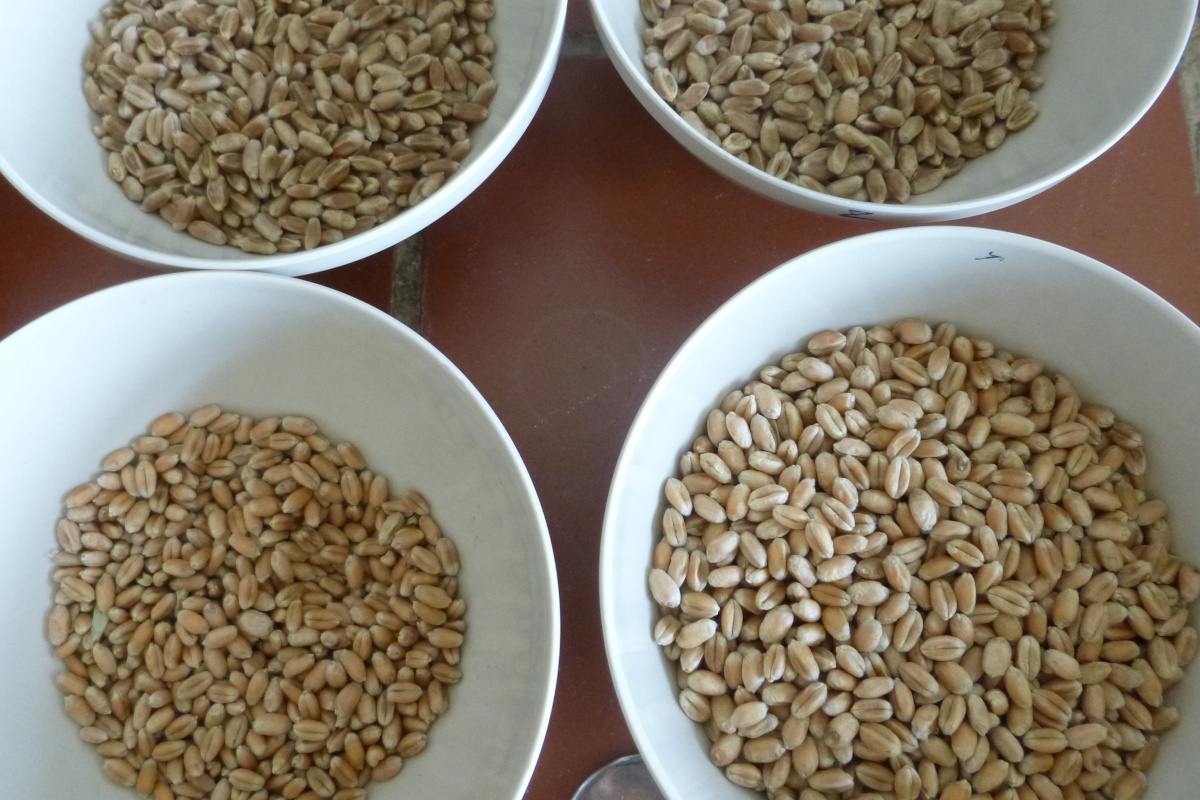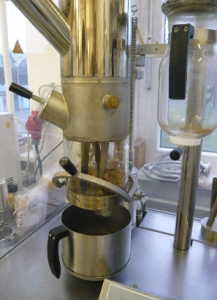
Decelerating detoration of fats
Strategies for decelerating the deterioration of fats in extruded whole grain products
The aim of the research project is to investigate which combinations process conditions and material characteristics are suitable for producing stable extrudates with excellent sensory properties. The investigations will focus on grain components (wheat and oat) as well as substances forming complexes with fats and therefore greatly decelerate fat oxidation physically. The relationship between ingredient content, quality and distribution in wheat and oats are to be compared. The properties of directly expanded cereals are investigated in terms of quality and quantity, taking into consideration the extrusion conditions, paying particular attention to the water content during extrusion and the changes of quality during storage. Critical process conditions are to be identified and avoided in order to decelerate the rancidity caused by autoxidation in directly expanded whole grain products.
Wheat stored in a dry and cool place was storage-stable in the trial period. The freshly ground whole meal flour was extruded. The extrudates were stored in PE film bags with pressure cap at 40°C. The samples stored in this way were storage-stable for up to 10 months, this corresponds to a storage period of 30 months at 25 °C and is therefore above the usual shelf-life requirements for cereals. The potential for the deterioration of fats due to autoxidation is low due to the extrusion. Oats possess a higher fat content than wheat. Oats are a husked cereal. Following the husking, the oats are exposed to enzymatic and oxidative fat deterioration reactions, which is why it has to be stabilised through kiln drying and steaming. Oats can only be processed with high extrusion moisture between 22-27%, which means that during extrusion reactions of the autoxidative deterioration of fats are not established to the expected extent. Due to the insufficient water evaporation when the mix leaves the extruder stencil during extrusion, the oat extrudates were dried. Types of the drying process as well as drying conditions are crucial for the sensory quality. The sensory and metrological evaluation showed that depending on the drying conditions considerable differences in the sensory quality during storage were determined. The oat extrudates became rancid, but to varying extents.

PROJECT DURATION:
2015-2018
PROJECT SPONSOR:
GF project AiF 18753 BG Research Association of the German Food Industrie (FEI)
GRANT-NUMBER-PN:
PROJECT MANAGER:
Research Centre I: Dipl.-Ing. Rosemarie Schneeweiß (ILU e.V.) Research Centre II: Dr. Ute Bindrich (DIL e.V.)
PROJECT PARTNER:
none